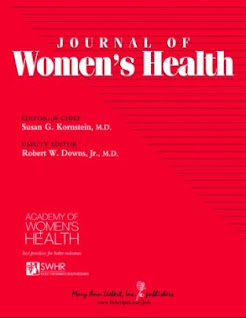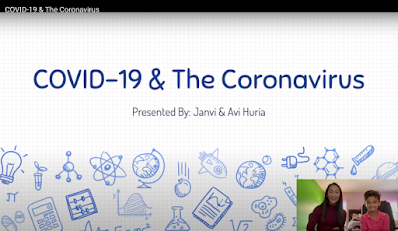December 2020 - Check out this publication I co-authored in the Journal of Women's Health about the gender-specific differences in healthcare, retail, IT, and transportation in the context of COVID-19.
October 2020 - Check out this article I wrote for the Pre-Collegiate Global Health Review about the rise of gender-based violence during the COVID-19 pandemic.
August 2020- Check out this district news feature about my presentation at the Johns Hopkins University Global Health Leaders Conference!
July 2020 - Check out this video of my presentation for the Global Health Leaders Conference at Johns Hopkins University!
March 2020 - Check out this video explaining COVID-19 from an easy-to-understand, scientific perspective for younger students!
April 2020- Check out this article about the mask-making network I was part of during the rise of COVID-19!
January 2020 - Check out this video feature by Rockwood School District of my elementary school science initiative, The Curiosity Partnership!
 |






This comment has been removed by the author.
ReplyDeleteIndeed, impressive and consistent works at such a young age. Janvi, you are consistently coming across as someone passionate about gender specific issues, which are undoubtedly enormously important, awaiting better understanding and being professionally tackled in today's world. It is so wonderful to see a serious minded, high achiever, selfless person in the making. Seems like an interesting future unfolding ahead for you that I would like to be keenly watching out, for you to fully blossom in to an asset to this world, and reach your desired and destined goals. Stay Blessed!
ReplyDelete